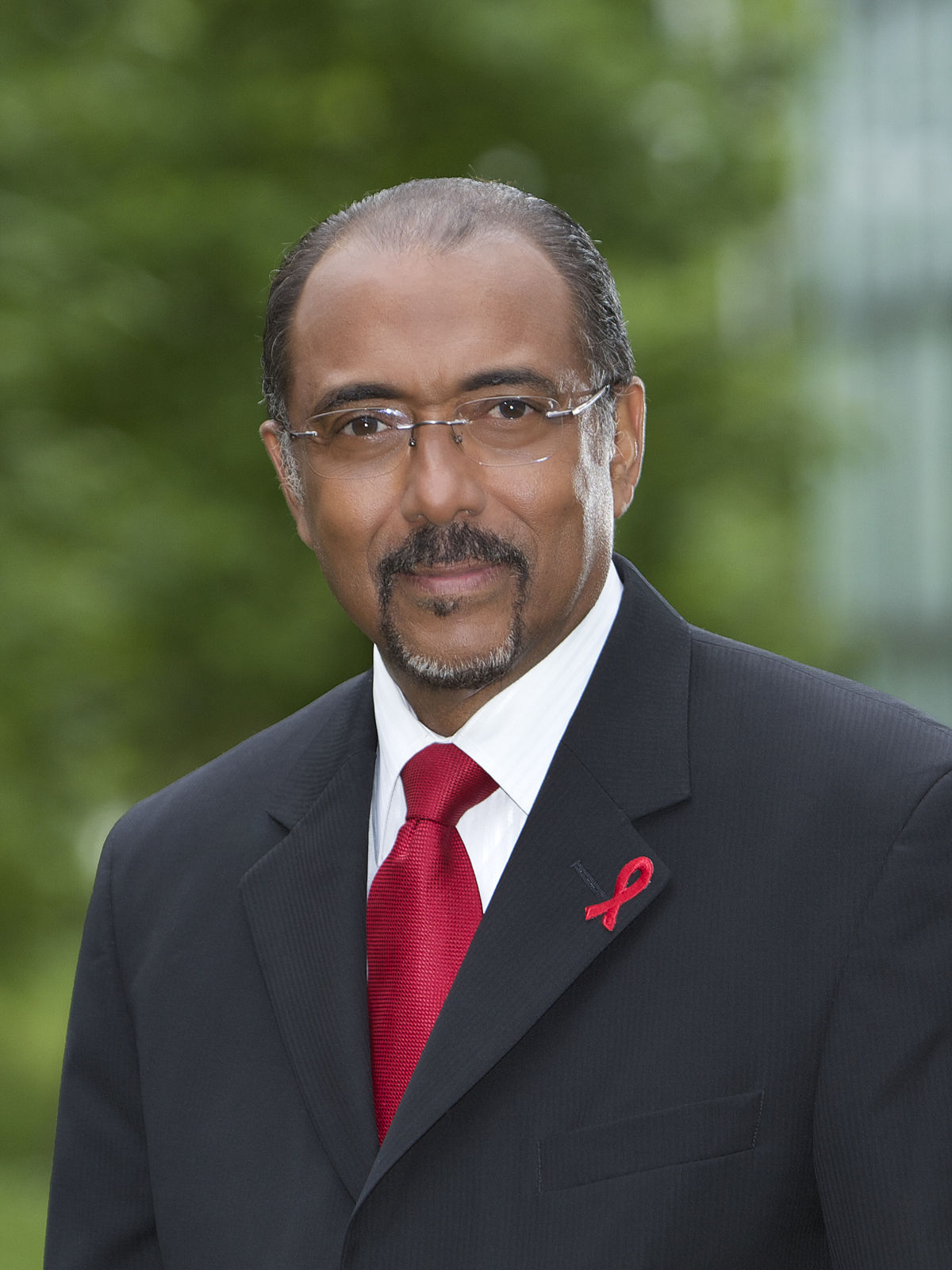
Message from Executive Director of UNAIDS Under-Secretary-General of the United Nations, Mr Michel Sidibé
This World AIDS Day, we are highlighting the importance of the right to health and the challenges that people living with and affected by HIV face in fulfilling that right.
The right to health is a fundamental human right—everybody has the right to the enjoyment of the highest attainable standard of physical and mental health, as enshrined in the International Covenant on Economic, Social and Cultural Rights.
The world will not achieve the Sustainable Development Goals—which include the target of ending AIDS by 2030—without people attaining their right to health. The right to health is interrelated with a range of other rights, including the rights to sanitation, food, decent housing, healthy working conditions and a clean environment.
The right to health means many different things: that no one person has a greater right to health care than anyone else; that there is adequate health-care infrastructure; that health-care services are respectful and non-discriminatory; and that health care must be medically appropriate and of good quality. But the right to health is more than that—by attaining the right to health, people’s dreams and promises can be fulfilled.
On every World AIDS Day, we look back to remember our family members and friends who have died from AIDS-related illnesses and recommit our solidarity with all who are living with or affected by HIV.
From the beginning, the AIDS response was built on the fundamental right to health and well-being. The AIDS community advocated for rights-based systems for health and to accelerate efforts for the world to understand HIV: how to prevent it and how to treat it.
Too many people—especially those who are the most marginalized and most affected by HIV—still face challenges in accessing the health and social services they urgently need. We all must continue to stand shoulder to shoulder with the people being left behind and demand that no one is denied their human rights.
This year has seen significant steps on the way to meeting the 90–90–90 treatment targets towards ending AIDS by 2030. Nearly 21 million people living with HIV are now on treatment and new HIV infections and AIDS-related deaths are declining in many parts of the world. But we shouldn’t be complacent. In eastern Europe and central Asia, new HIV infections have risen by 60% since 2010 and AIDS-related deaths by 27%. Western and central Africa is still being left behind. Two out of three people are not accessing treatment. We cannot have a two-speed approach to ending AIDS.
For all the successes, AIDS is not yet over. But by ensuring that everyone, everywhere accesses their right to health, it can be.
WHAT IS PANCAP?
PANCAP is a Caribbean regional partnership of governments, regional civil society organisations, regional institutions and organisations, bilateral and multilateral agencies and contributing donor partners established on 14 February 2001. PANCAP provides a structured and unified approach to the Caribbean’s response to the HIV epidemic, and coordinates the response through the Caribbean Regional Strategic Framework on HIV and AIDS to maximise efficient use of resources and increase impact, mobilise resources and build the capacity of partners.
What are the Global AIDS Strategy 2021–2026 targets and commitments?
If targets and commitments in the strategy are achieved:
- The number of people who newly acquire HIV will decrease from 1.7 million in 2019 to less than 370 000 by 2025
- The number of people dying from AIDS-related illnesses will decrease from 690 000 in 2019 to less than 250 000 in 2025.
- The goal of eliminating new HIV infections among children will see the number of new HIV infections drop from 150,000 in 2019 to less than 22,000 in 2025.
What are the 95-95-95 Targets for ending AIDS?
- 95% of People Living with HIV know their HIV status;
- 95% of people who know their status on treatment; and
- 95% of people on treatment with suppressed viral loads.
HELPFUL LINKS:
Global AIDS Strategy 2021–2026, End Inequalities, End AIDS
https://pancap.org/pancap-documents/global-aids-strategy-2021-2026-end-inequalities-end-aids/
Caribbean Regional Strategic Framework on HIV and AIDS (CRSF) 2019-2025
https://pancap.org/pancap-documents/caribbean-regional-strategic-framework-2019-2025/
